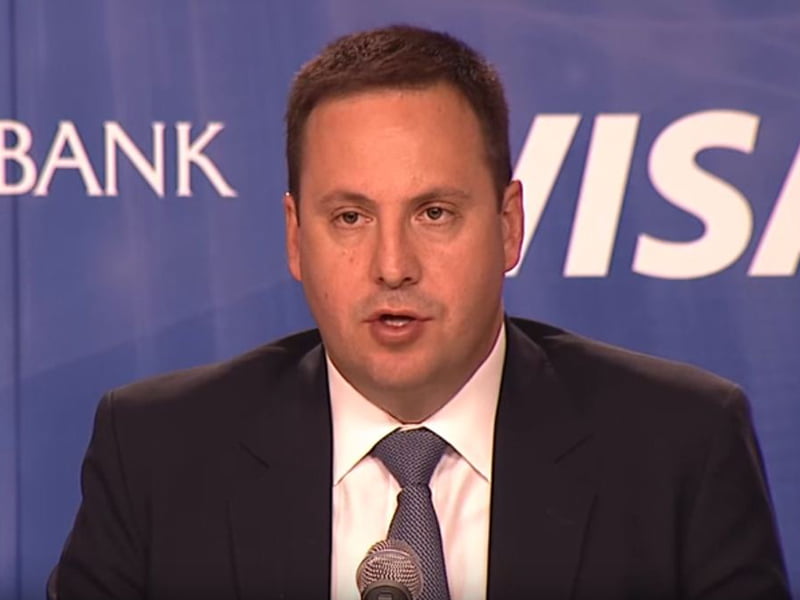The quiet but persistent strengthening of industry and research relationships with Germany was given a further boost with the creation of a ‘landing pad’ for Australian startup companies in Berlin.
Australian Trade Minister Steven Ciobo last week announced Berlin as this government’s fourth international landing pad, surprising many who thought the Europe-based landing pad would be named in London.
The government committed to five landing pads in its National Innovation and Science Agenda. IT has so far named four – San Francisco, Tel Aviv, Shanghai and now Berlin.

The fifth has been earmarked for Asia. Most people think it will be located in Singapore as the safe-option that is geographically central to the giant and growing middle class of ASEAN nations.
But the odds that this government might instead set up its second Asia-based startup landing pad in India must surely be shortening.
The decision to go to Berlin is a good one (and had been advocated by InnovationAus.com.)
It opens new opportunities for collaboration in a vastly broader array of sectors than was available in London, especially in the industrial internet and advanced manufacturing.
The decision to set up in Germany is a relief, for no other reason than it shows this is more than a Paint-By-Numbers exercise.
Germany has been neglected by successive Australian governments. It is an incredibly important trade partner, and source of inward investment. And yet we’ve only fairly shallow (there are exceptions, of course) industrial research collaborations. We have not built the relationships to enable Australian firms’ access to global supply chains into and out of the German industrial powerhouse.
Naming Berlin as the landing pad for our early stage companies looking to Europe makes more sense when you consider it is not an engagement made in isolation.
Australia and Germany had a senior bilateral dialogue underway aimed specifically at deepening the trade and investment relationship . The exchange was first mooted during the visit to Australia of German Chancellor Angela Merkel and then formally established in April last year.
The effort was led on the Australian side by Finance Minister Matthias Cormann, and has had the vocal support of Malcolm Turnbull, both as Prime Minister and in his previous role as Communications Minister.
In fact, the Prime Minister’s wife Lucy Turnbull was named as a member of the Australia-Germany Advisory Group – of which Mr Cormann is chair – on the back of her current presidency of the Australia-Germany Chamber of Industry and Commerce.
There has been some progress made. The Advisory Group presented the (new) Prime Minister and Chancellor Merkel with 59 recommendations for strengthening recommendations when the two met in Berlin in December. And these have been diligently plotted, as you expect from a project that has the political imprint of two national leaders.
The Prime Minister’s Industry 4.0 Taskforce was announced last week (weirdly by German industrial giant Siemen’s rather than the PMs office), which was a direct recommendation of the Advisory Board.
The taskforce attended the Hannover Messe last week (the world’s largest industrial automation trade fair) and was allowed observer status in discussions between the German ‘Plattform Industrie 4.0’ and US ‘Industrial Internet Consortium’ (IIC). These are the two most powerful standards-setting voices in the transformation sector.
The members of the Prime Ministers Industry 4.0 Taskforce are:
• Jeff Connolly, Chairman and CEO of Siemens Australia
• John Ruthven, President and Managing Director SAP Australia and New Zealand
• John Pollaers, Chairman of Australian Advanced Manufacturing Council
• Stephen Durkin, CEO of Engineers Australia
• Keith McLean, Director CSIRO Manufacturing
• Aleksandar Subic, Swinburne’s Deputy Vice-Chancellor (R&D)
You can only wonder why it was left to Siemens to announce this (and after the Hannover Messe had already begun.) The Prime Minister’s office has been business in the past week or so, with $50 billion submarine contracts to sign, and global climate change partnerships to enter, and Smart Cities programs to launch. The paperwork must have been lost somewhere along the way.
Which brings us back to the stealthy Berlin landing pad, which avoided any mainstream media attention whatsoever.
This is a good idea. We need to reset the way we think about Europe, and to deepen the relationship across the board. The landing pads cannot just be a place for restaurant takeaway apps and fashion retail platforms.
They must also enable the huge opportunities of the industrial internet. Germany is a good place to start.
As Australia enters trade negotiations with the European Union, a startup base Berlin within the heart of Europe’s industrial engine room is a good place to start.
Australian Trade Minister Ciobo said the Berlin landing pad would help Australian startups think globally, tapping into entrepreneur, industry and capital networks.
“It will also contribute to stronger ties with Europe’s largest economy as Australia seeks to begin negotiations for a free trade agreement with the European Union,” he said.
Do you know more? Contact James Riley via Email.

